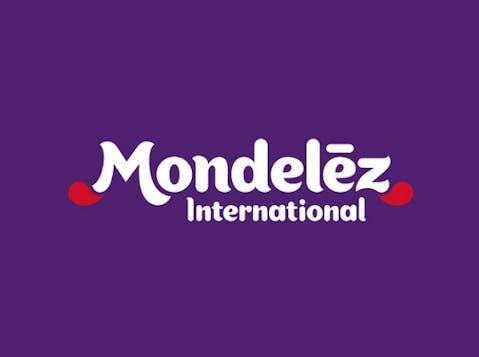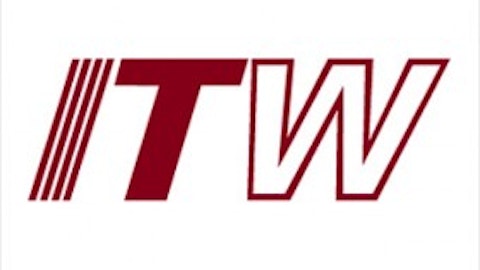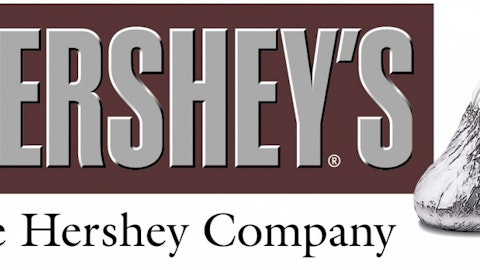Danone has been on an acquisition spree to expand its footprint in the global food & beverage business. Recently, it agreed to acquire as much as a 92% stake in Happy Family, a fast growing organic baby food company. It also snapped up a 50.1% stake in Sirma, a Turkish company specializing in flavored bottled waters and Home & Office Delivery. Since the beginning of the year, Danone has grown from $13.15 per share to more than $14.80 per share. Let’s take a closer look to determine whether or not we should invest in Danone at its current price.
A solid growing first quarter
In the first quarter of 2013, Danone experienced solidly growing sales. Revenue increased from €5.11 billion in the first quarter last year to €5.34 billion in the first quarter of 2013. Danone derived most of its revenue, €2.95 billion, or 55.2% of the total Q1 2013 revenue, from the Fresh Dairy Products segment. The Baby Nutrition segment ranked second with nearly €1.18 billion, while the Water segment generated €887 million in sales in the same period. The Baby Nutrition segment is the fastest rising segment, with a year-over-year growth of 17.1%.
The company would adapt its business model for the continued slow growth in Europe. By the end of 2014, Danone expected to generate around €200 million in savings. For the full year 2013, Danone is estimated to generate around €2 billion in its free cash flow. At $14.80 per share, Danone is worth $44.1 billion on the market. It is valued at 11.5 times EV/EBITDA and 20.7 times its forward earnings.
Happy Family is really a fast growing organic baby food business. Its products have been sold in more than 20,000 stores in the U.S., including at Target Corporation (NYSE:TGT) and the organic-focused supermarket Whole Foods Market, Inc. (NASDAQ:WFM). According to the Wall Street Journal, its revenue increased by nearly four times in just two years, from $13.3 million in 2010 to $62.3 million in 2012. Founder Shazi Visram would continue to lead the business after the acquisition. She mentioned that Danone would be an “optimal fit” for her business.
Danone has been the target of famous activist investor Nelson Peltz. Peltz thinks that the company owned a great “21st century” portfolio with its Yogurt, Bottled Water and Baby Nutrition business. Its Yogurt business is a global leader, with 23% of the world’s market share.
Like Mondelez, it is also a huge emerging market player
Whenever people think of , they think of developing markets. Interestingly, Danone generated a greater share of its revenue from emerging markets than Mondelez International Inc (NASDAQ:MDLZ). While the developing markets accounted for 45.4% of Mondelez’s total revenue, Danone derived as much as 52% from the emerging markets.
Mondelez focuses its business on the BRIC regions (Brazil, Russia, India and China). The company has experienced a 9.3% year-over-year growth in revenue in the first quarter 2013, with double-digit growth in three important and heavily populated markets: India, China and Brazil. For the full year 2013, the company expected an organic revenue increase of 5%-7%, with the operating EPS of $1.55 to $1.60 per share. Mondelez International Inc (NASDAQ:MDLZ), at $29.50 per share, has a total market cap of $52.60 billion. The market values Mondelez at as high as 13.85 times EV/EBITDA and 19 times its forward earnings.
PepsiCo with its profitable Frito-Lay
Nelson Peltz has recently shown his interest in Mondelez International Inc (NASDAQ:MDLZ), as well as the world’s second biggest soft drink maker, PepsiCo, Inc. (NYSE:PEP), by investing around $2.7 billion in both companies. Many investors speculate that he might want Pepsi’s Frito Lay business to be spun off and merged with Mondelez. Frito-Lay North America is Pepsi’s biggest operating profit contributor, generating nearly $3.65 billion in profit in 2012, while PepsiCo Americas Beverages ranked second with nearly $2.94 billion in operating profit. If Frito-Lay was to be merged with Mondelez International Inc (NASDAQ:MDLZ), the combined company could be the most dominating food business in the world. With the operating profit of $3.65 billion, a simple 20 P/E would value Frito-Lay at as much as $73 billion. PepsiCo, Inc. (NYSE:PEP) is trading at $80.80 per share, with a total market cap of $125 billion. The market values PepsiCo, Inc. (NYSE:PEP) at around 12.5 times EV/EBITDA and 20.7 times its forward earnings.
My Foolish take
As those consumer goods giants are operating under conglomerate structure, a lot of value could be unlocked via a spinoff and business restructuring. With the global leading positions in the global food industry, all three companies mentioned above could fit well in the long-term portfolios of patient investors.
Anh HOANG has no position in any stocks mentioned. The Motley Fool recommends PepsiCo, Inc. (NYSE:PEP). The Motley Fool owns shares of PepsiCo.
The article Three Big F&B Giants for Your Long Term Portfolio originally appeared on Fool.com.
Anh is a member of The Motley Fool Blog Network — entries represent the personal opinion of the blogger and are not formally edited.
Copyright © 1995 – 2013 The Motley Fool, LLC. All rights reserved. The Motley Fool has a disclosure policy.





